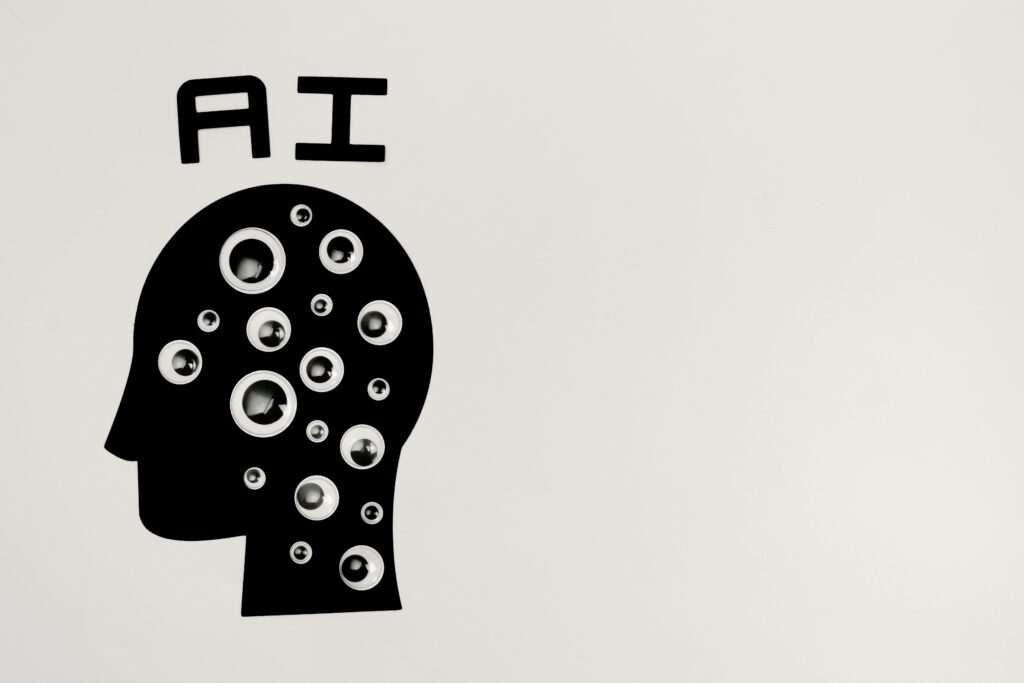Are you interested in the ways technology can assist businesses run more effectively? Imagine having helpers who are super-smart and can complete many tasks at a rapid pace! These assisters are referred to as AI tools and could make a huge difference in the way businesses function. We’ll go over the top 10 businesses AI tools that simplify work, rise customer happiness, and help in selling more products. Let’s take a look!
What Are AI Tools?
AI tools are specially designed computer programs created to help individuals complete their tasks better and quicker. Like a superhero who can fly in to bring down the bad guys, AI tools can swoop into businesses to make sure they to run more efficiently. They can automate tedious tasks, analyze data and even speak to customers!
Why Use AI Tools in Business?

Utilizing AI tools for business can be like having access to a powerful toolbox. Here are some of the reasons businesses should consider using AI tools:
- preserve time: AI tools can do repetitive tasks in a short time and allow employees to concentrate on their work.
- Reduce the Chance of Mistakes: Machines do not become tired, which is why they are able to help reduce errors that occur when people are distracted or busy.
- Improve Customer Experience AI helps to understand what customers are looking for, leading to happier customers as well as better sales.
Top 10 Business AI Tools

| Tool | Description |
| 1. Automation Solutions | AI tools that automate boring tasks like data entry and scheduling emails, freeing up time for more important work. |
| 2. Predictive Analytics Platforms | These tools study past data to predict future trends, helping businesses make smarter decisions. |
| 3. Customer Relationship Management (CRM) Systems | AI-powered systems that help businesses keep track of customer interactions and improve relationships. |
| 4. Natural Language Processing (NLP) Tools | Tools that analyze text data to understand customer feelings and preferences. |
| 5. Image Recognition Software | AI that categorizes and analyzes images, which can help businesses tag products or understand customer preferences. |
| 6. Virtual Assistants and Chatbots | AI helpers that can answer questions, schedule appointments, and provide 24/7 customer support. |
| 7. Data Security Solutions | AI tools that protect businesses from cyber threats by analyzing network traffic and identifying suspicious activities. |
| 8. Marketing Automation Platforms | These tools help businesses send targeted emails, post on social media, and personalize content for customers. |
| 9. Business Intelligence (BI) Dashboards | Tools that turn complex data into easy-to-read charts and graphs for better decision-making. |
| 10. Supply Chain Optimization Software | AI tools that analyze supply chain processes to identify inefficiencies and optimize deliveries. |
1. Automation Solutions: Free Up Your Time and Resources
The automation solutions work like magical wands to businesses! They assist in getting away from tedious and boring tasks. For instance If a company needs to input a lot of data into spreadsheets each day, an automated tool can complete the task in a matter of minutes! This allows employees to focus their attention in more creative endeavors including creating innovative products, or using innovative marketing concepts. Tools like IFTTT and Zapier are a popular choice for automating daily tasks.
An example from the real world Consider a bakery that gets hundreds of orders from online each day. Instead of manually logging every order into their database, they could use automation tools to automate the updating of their inventory and notify kitchen staff, making sure that no order is left unnoticed.
2. Predictive Analytics Platforms: See What’s Coming Before It Happens
Predictive analytics tools serve as crystal balls for companies. They analyze past data, such as sales figures and preferences of customers–to predict what could be the case in the future. For example If a store selling toys notices that sales of specific toys are rising in the holiday season it can stock up on the toys earlier to satisfy demands. Tools such as Tableau or IBM Watson Analytics help businesses in making these predictions.
An example from the real world An apparel store could observe that people are buying more summer clothing in May. With this knowledge they can plan their advertising and stocking up on more summer clothing earlier during the season!
3. Customer Relationship Management (CRM) Systems: Building Stronger Customer Bonds
AI-powered CRM systems can be described as having a friend who keeps track of your customers’ preferences! They track the things customers enjoy and when they last purchased something, and the perfect way to make them feel happy. In this way, companies can tailor messages and special offers to their clients. The most popular CRM tools are Salesforce as well as HubSpot.
Real-world examples: A pet shop can utilize a CRM system to track the pets of customers who have been adopted, and then send them discounts on pet items in the event that they require these.
4. Natural Language Processing (NLP) Tools: Understanding Your Customers Like Never Before
NLP tools assist businesses in understanding human language. They are able to read and analyze customer reviews as well as emails or social posts, to determine the opinions of people about the products or services. This can help businesses understand what their customers like or what they would like to increase. Tools such as Google Cloud Natural Language API and Amazon Comprehend are excellent examples of NLP working.
Real-world examples Restaurants can analyze the feedback of customers to determine that most people enjoy their pasta, but would prefer more vegetarian choices. This could lead to the introduction of new dishes catering to the preferences of those who prefer it!
5. Image Recognition Software: Seeing is Believing (and Selling)
Software for image recognition is an effective tool that enables businesses to analyse and categorize photos. For instance, when customers upload pictures of products they are interested in, these software will identify the item and suggest similar products. Tools such as Google Vision and Clarifai are well-known options for image recognition.
A real-world scenario: An online clothing store allows customers to upload photos of an outfit they love and then the program will recommend similar dresses that are available on their site.
6. Virtual Assistants and Chatbots: 24/7 Support for Your Customers
Chatbots and virtual assistants function kind of robots that assist customers at any time of day or even at night! They are able to answer queries, guide customers to find the information they require and can schedule appointments. Tools such as ChatGPT and Dialogflow enable companies to create the chatbots they want to use.
An example from the real world An example of a bank could be chatbots on its website to address common queries regarding balances on accounts and transactions that allow customers to receive assistance without having to call the phone.
7. Data Security Solutions: Protecting Your Business in the Digital Age
Due to the increasing number of cyber threats cybersecurity solutions for data are vital to protect companies from cyberattacks. These AI tools track network activity in search of any indications of suspicious. If they spot a possible danger, they alert the company to take swift action. Tools such as CrowdStrike as well as Darktrace are well-known for their sophisticated security features.
An example from the real world A healthcare business can use data security tools to guard patient data to warrant it’s safe from hackers and is in line with privacy laws.
8. Marketing Automation Platforms: Working Smarter, Not Harder
Marketing automation software helps businesses connect with clients more efficaciously through automation of marketing tasks. They can plan social media posts as well as send targeted emails and study customer behavior to develop targeted marketing campaigns. Tools such as Mailchimp or Marketo are well-known in this field.
A real-world scenario An example of a toy store would be to utilize the marketing automation system to deliver customized birthday emails to customers, promoting special discounts for toys that are suitable for children.
9. Business Intelligence (BI) Dashboards: Making Data-Driven Decisions
BI dashboards make understanding data much easier! They transform complicated information and numbers into vibrant graphs and charts. This allows businesses to quickly understand the areas that are working and those that require improvements. Tools such as Power BI and Qlik are excellent for displaying information.
An example from the real world: A travel agent could use a BI dashboard to determine the vacation packages that are most popular and alter their offerings in line with the demand.
10. Supply Chain Optimization Software: From Chaos to Control
Controlling the supply chain can prove a challenge, however, supply chain optimization software can help businesses boost their processes. These tools look at everything from supply chain levels to delivery routes and help identify areas to improve. Tools such as SAP Integrated Business Planning and Oracle SCM Cloud are widely employed for this purpose.
Real-world examples An online food delivery service could make use of this software for warrant the availability of satisfying ingredients in stock and that deliveries are made promptly, leaving customers satisfied with delicious food!
Frequently Asked Questions (FAQs)
1. What is AI?
AI stands for Artificial Intelligence. It is a method of technology that lets machines learn and carry out tasks that typically require human expertise, such as comprehending language, recognizing images, and taking decisions.
2. What are the benefits for businesses that can be derived in the use of AI tools?
Companies can reduce time, cut down on mistakes, rise customer experiences, and make better decisions together AI software. They can be more focused on their strategic and creative work.
3. Are AI tools expensive?
The price for AI tools can differ widely. Some tools are completely free or come with low-cost options however, others might require an annual subscription. It is essential for companies to select tools that meet their budget and requirements.
4. Can AI tools be used to replace human workers?
AI tools are created to aid humans and not substitute them. They can take on repetitive tasks, which allows workers to concentrate on more complicated and innovative aspects of their job.
5. What should I consider when choosing the best AI tool for my company?
Begin by identifying the particular areas you’d like to rise. Explore various tools, read about and then consider trying several options to determine which one is the desirable for your company.
Final Thoughts
AI tools are revolutionizing the way businesses function by making them more effective and able to respond to the needs of customers. Through the use of these technologies they can not only improve their processes, but also increase the customer experience and boost growth. If you’re a company owner or simply interested in the latest technology, you should look into this AI tools to find out how they can help you!

